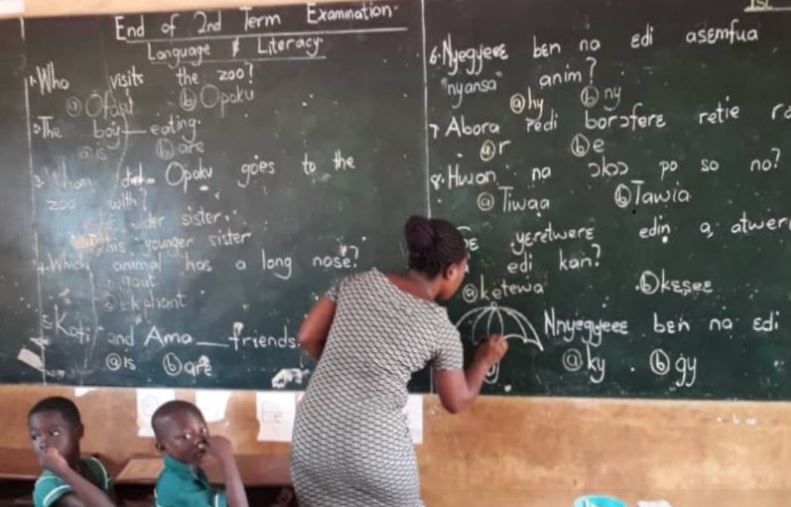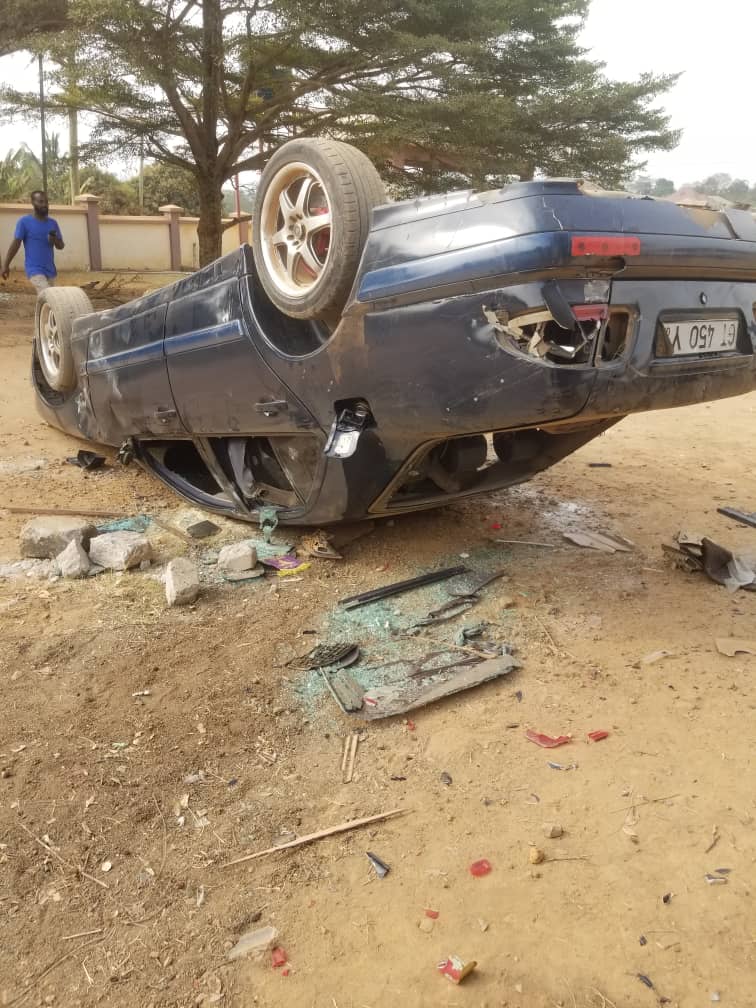‘We stopped collection of printing fees to avoid extortion’ – GES

The Ghana Education Service (GES) has justified its decision to halt the collection of printing fees in basic schools across the country.
But, GES said it did not direct the teachers to write examination questions on chalkboards.
There have been concerns over teachers writing examination questions on chalkboards for pupils writing their end of second term examinations.
Photos of teachers writing examination questions on chalkboards went viral on social media as many decried what was seen as unnecessary stress on teachers as well as the pupils.
But the GES insists the scrapping of printing fees was to avoid extortion or discrimination.
Public Relations Officer for GES, Cassandra Twum Ampofo told host of Eyewitness News, Umaru Sanda Amadu said printing fee should not be the requirement for a student to sit for an exam.
“We didn’t tell teachers to write on the chalkboard, we made teachers stop collecting printing fees because there was abuse from schools charging huge money for printing fee. We decided that teachers should stop collecting the printing fee and the printing fee should not hinder someone from writing the exams or prevent students from coming to school,” she said.
Exams on chalkboards
Teachers in some basic schools in parts of the country resorted to writing examination questions on chalkboards following a directive by the Ghana Education Service (GES) to heads of schools not to collect printing fees from the pupils.
Some schools also refunded monies they collected from the pupils as printing fees after a meeting with their district directors who asked them to comply with the GES directive.
Some teachers who spoke to Citi News said their hands were tied and had no choice but to write questions on chalkboards.
“It was a warning so we went according to what they said and we started examinations yesterday and we wrote on the chalkboard, according to their directive,” a teacher said.
Some of the teachers had to write over 40 objective questions on boards for the students within a limited amount of time and space.
Another teacher said the whole process was “very hectic.”
“By the time you even finish writing, the time is almost gone. It is very bad… this is not quality education,” he added.
–
By: citinewsroom.com





